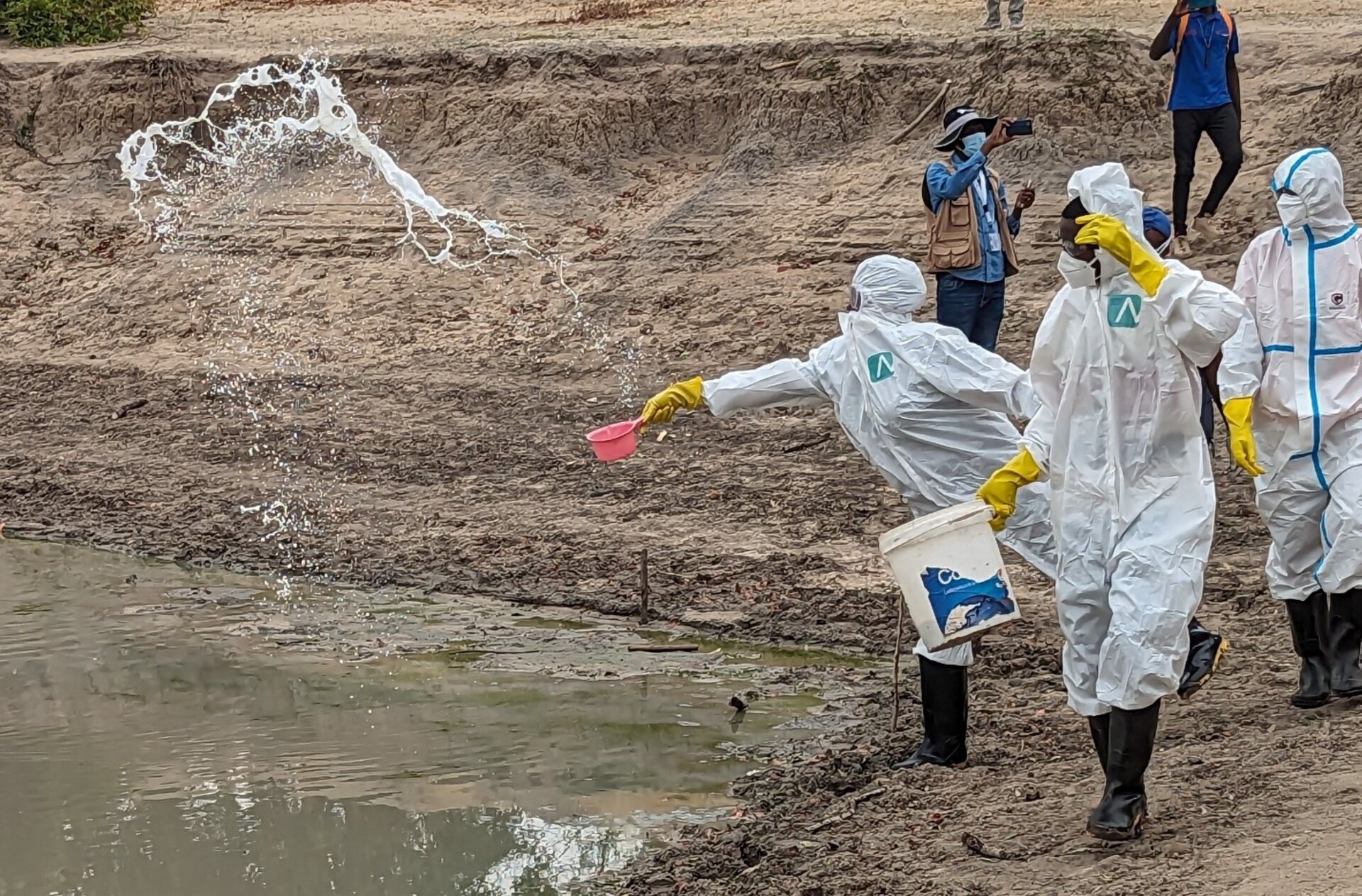ผู้บริจาคสร้างความแตกต่าง: WHO ชุมชน และพันธมิตรร่วมมือกันเพื่อยุติโรคติดเชื้อ
04/03/2024
Contributions to WHO are being used to free communities from a range of dangerous infectious diseases. Some, like malaria, kill mainly children. Others, like the disfiguring Guinea worm and noma infections, are linked to poor access to clean water and other aspects of poverty.
This week, see stories about how contributions have been translated into action in Cabo Verde, where years of persistent effort have eliminated malaria; in Panama, where community collaborators are filling a health-services gap in hard-to-reach villages; and in Paraguay, where teams are going from one neighborhood to the next, removing the breeding grounds of the mosquitoes that transmit dengue fever.
Read also about work under way in Angola to eradicate Guinea worm disease, Cameroon’s significant progress in reducing HIV, success against hepatitis B in Maldives and Sri Lanka, and fighting back against cholera outbreaks in Zambia and Zimbabwe.


